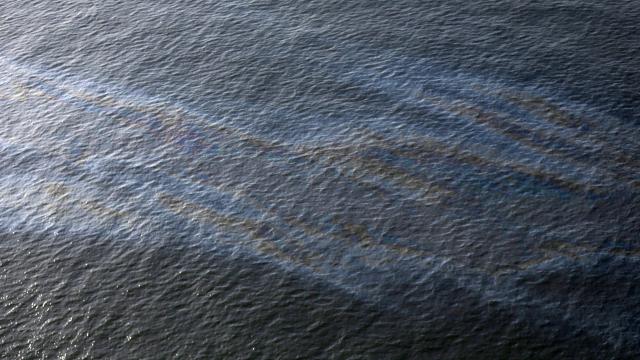There’s an oil spill in the Gulf of Mexico that has been ongoing since 2004, potentially spilling as much or more oil over the course of 17 years as the Deepwater Horizon disaster. Yet rather than being held accountable, the owner of the company at fault used the slow cleanup as a write-off so she could pay no federal income tax, according to a new ProPublica report. The story, which is part of a larger series ProPublica is running analysing leaked documents showing the ways the ultra-wealthy wiggle out of paying taxes, shows how a disaster and government-ordered environmental cleanup can be used as tools by the rich to make even more money.
ProPublica analysed 13 years of personal tax returns from Phyllis Taylor, the owner of Taylor Energy. A rig owned by the company first sprung a leak in the Gulf following 2004’s Hurricane Ivan. In that period, between 2005 — the year after the spill started — and 2018, ProPublica found that Taylor paid no income taxes on the $US444 (A$621) million she earned. She got away with this in part thanks to claiming a massive financial loss that, by Taylor Energy’s former CEO’s estimate, doesn’t exist, and an ineffective cleanup. All this happened even as the leak her company caused continued to spill thousands of gallons of oil a day into the ocean, endangering marine life.
Taylor’s financial windfall actually kicked off with a personal tragedy: Her husband, Patrick Taylor, the founder of Taylor Energy, died in 2004, just a few months after Hurricane Ivan. Fortunately for Taylor’s finances, U.S. tax law actually allows spouses to inherit companies with zero estate tax involved — a loophole that is projected to cost the U.S. Treasury around $US500 (A$700) billion in lost revenue over the next 10 years. Taylor, then 63, was essentially gifted ownership of the company without any of the large capital gains tax that her husband would have had to pay had he decided to sell the company to an outside party.
In 2008, Taylor decided she wanted out of Taylor Energy, and sold off its assets to two South Korean companies for $US1.25 (A$1.75) billion. Because she’d inherited the company without any associated tax, and because Taylor Energy was a private company, her accountants were able to perform a bit of tax magic: They assigned the company an incredibly high value, meaning that, on paper, the $US1.25 (A$1.75) billion sale would look like it was an undersell. Taylor was then allowed to report a loss on the sale of $US211 (A$295) million — despite personally getting around $US1.2 (A$1.7) billion out of the sale. That loss meant she didn’t have to pay any taxes on her income from the sale — and even got scored a $US30 (A$42) million refund on past taxes. (Must be nice.)
Taylor’s grift kept going, buoyed, incredibly, on cleanup for the huge mess her company had made in the Gulf. A few months after she sold the company, the federal government negotiated a deal with Taylor Energy that mandated it create a $US666 (A$932) million trust entirely devoted to cleaning up the still-leaking well. Because of the way the company was set up, this trust was linked to Taylor’s personal financial accounts — and she was allowed to write off those cleanup costs on her personal taxes.
Even as Taylor was reaping financial rewards from the spill, she and her company were dragging their feet on cleanup, blocking attempts to make the extent of the disaster known and claiming that the leak was impossible to plug. The company was also simultaneously launching a series of (failed) legal actions against the government to try and get back some of the money it was spending on cleanup. They also consistently claimed that the spill was only leaking 11 to 18 litres per day; those figures were later revisited by the National Oceanic and Atmospheric Administration, which report estimated that the leak was more than 900 times larger than Taylor’s figures in a 2019 report.
As ProPublica reported, Phyllis Taylor’s reported “losses” from the sale of her company as well as the cleanup are enough to keep her in the red tax-wise for several more years. The spill’s impacts will also play out for several more years, if not longer.
“Some [species] will recover faster, while others may take decades,” Martin Grosell, a professor of marine biology and ecology at the University of Miami, said in 2019 Q&A about the spill on the university’s site. “Such differences in recovery rates may lead to unbalanced ecosystems with consequences for some species even if these species were not directly impacted by the spill itself. However, considering past spills, recovery can, in some cases, take decades.”
As big oil companies come under increasing scrutiny for their misdeeds, Taylor’s story is a reminder that lesser-known companies have played major roles in causing environmental damage, from a tiny Alabama oil and gas producer snapping up more wells than Exxon to an oil midmajor belching out more methane than the brand name companies. Those companies face less scrutiny and are able to get away from more — and make some serious money in the process.
